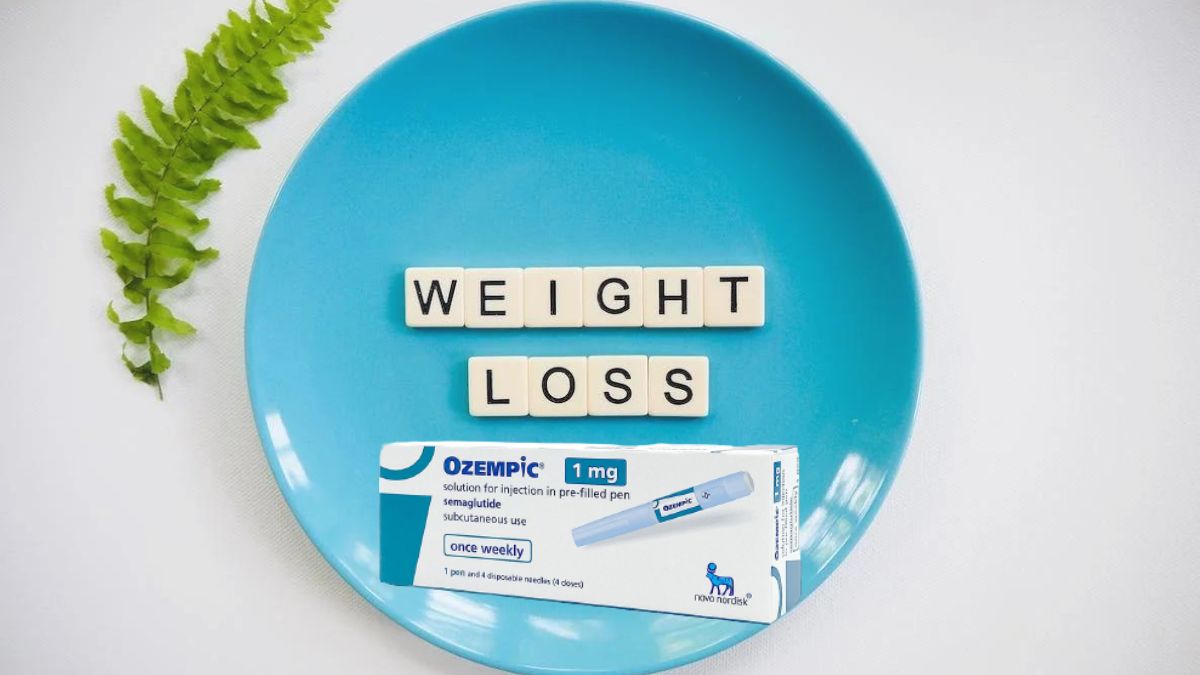Obesity has risen to prominence as a major global health issue in recent years. The prevalence of obesity keeps rising despite the wide availability of treatments aimed at reducing excess weight. This has resulted in a search for improved therapeutic methods that pose less risk to the patient. Ozempic is one such alternative. This article delves at the weight loss app Ozempic.
What is Ozempic?
Semaglutide, created by Novo Nordisk, is marketed under the brand name Ozempic. This medication is a glucagon-like peptide-1 (GLP-1) receptor agonist and is administered through injection once weekly. The Food and Drug Administration first green-lighted Ozempic in 2017 to treat type 2 diabetes. However, the FDA also approved it in 2021 for use in reducing body fat.
How does Ozempic work for weight loss?
Ozempic is effective because it simulates the gastrointestinal (GI) hormone GLP-1, which is normally secreted following a meal. GLP-1 aids in blood sugar regulation by increasing insulin production and decreasing the production of the blood sugar-raising hormone glucagon. Additionally, GLP-1 helps suppress hunger and heighten satiety by delaying gastric emptying.
Ozempic has the same effects as GLP-1 since it also works by attaching to and activating GLP-1 receptors in the body. This aids weight loss by reducing hunger and increasing satiety after eating less. Ozempic’s potential to boost metabolism and encourage fat burning does not end there.
What are the benefits of using Ozempic for weight loss?
Ozempic is a safe and proven method for reducing excess fat. Over the course of 68 weeks, participants taking Ozempic lost 15% of their body weight on average in clinical studies. That’s a lot greater weight loss than people have gotten from other diet pills.
Compared to daily pill taking, patients will find the once-weekly injection form of Ozempic much more manageable. Ozempic also has a low incidence of adverse effects and a positive safety profile.
Who is a good candidate for Ozempic for weight loss?
Adults with a body mass index (BMI) of 27 or above with at least one weight-related ailment, such as hypertension, diabetes type 2, or high cholesterol, are good candidates for Ozempic treatment. People with a body mass index (BMI) of 30 or above who are otherwise healthy may also benefit from Ozempic.
Ozempic is not a miracle pill that will magically cause you to lose weight. It works best when combined with other strategies for losing weight, such as a change in diet, an increase in physical activity, and other lifestyle adjustments.
What are the potential side effects of Ozempic?
Side effects are possible with Ozempic, as they are with any medicine. Nausea, vomiting, diarrhea, constipation, and stomach discomfort are the most commonly reported adverse reactions. These are typically minimal side effects that go away on their own.
- The risk of serious side effects, including as pancreatitis, kidney problems, and thyroid cancer, from taking Ozempic is low yet there. The slight risk of these negative effects is outweighed by the possible benefits of weight loss.
- Although Ozempic shows promise as a treatment for obesity, it is not a silver bullet. It works best when combined with other strategies for losing weight, such as a change in diet, an increase in physical activity, and other lifestyle adjustments. Patients who are taking Ozempic for both diabetes and weight loss should maintain a strict regimen of blood sugar monitoring.
- Consult your healthcare provider before beginning treatment with Ozempic or any other weight reduction drug. Based on your health history and present condition, your doctor will be able to advise you on whether or not Ozempic is the best treatment option for you. In addition, they can offer advice on the most secure and efficient ways to take their prescription.
Conclusion
Clinical investigations have revealed that Ozempic is a safe and effective therapy option for weight loss. It controls blood sugar and hunger by acting like the hormone GLP-1, which occurs naturally in the body. With Ozempic, patients just need to inject it once every seven days, making it more convenient than daily prescriptions. Patients with a BMI of 27 or higher and one or more weight-related conditions have also demonstrated improvement while using this method. Ozempic also boasts a low-risk safety profile, meaning that it causes few unwanted side effects.
Ozempic, after undergoing extensive testing, has been found to be a safe and effective medication for weight loss. By simulating the actions of the hormone GLP-1, it helps people eat less, feel fuller, and burn more fat. It’s not a silver bullet, but it can be helpful as part of a larger strategy for losing weight. Consult your physician before deciding whether or not to use Ozempic as a weight reduction aid.











